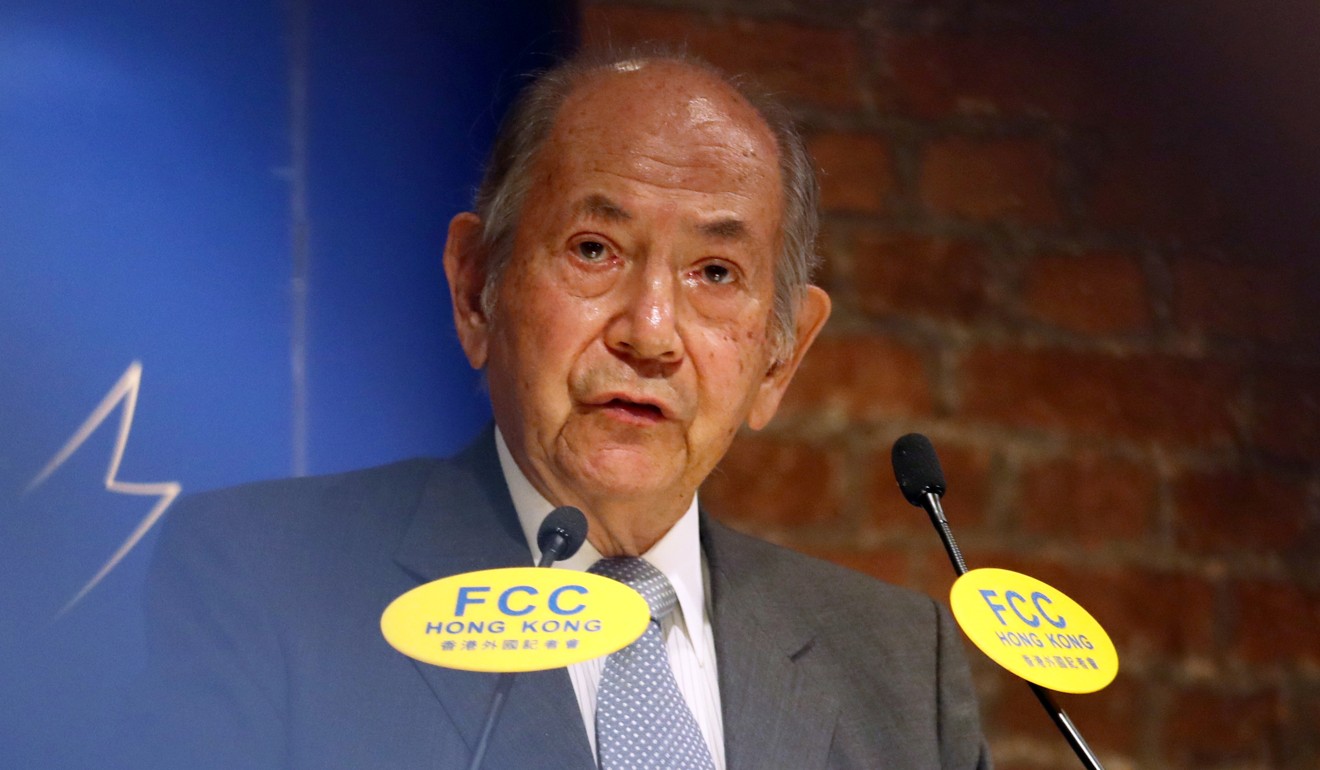
Hong Kong judicial independence is safe, former judge Henry Litton says
Ex-top judge dismisses claims from foreign lawyers that the jailing of political activists was a ‘serious threat’ to rule of law in the city
A former top Hong Kong judge said on Wednesday he did “not see any threat to judicial independence” amid concerns in the city and abroad regarding the jailing of three prominent political activists in the city.
Former Court of Final Appeal judge Henry Litton also said it would be “entirely appropriate” for Beijing to suggest in a much-criticised white paper in 2014 that Hong Kong judges should be the city’s “administrators”, if the central government was only implying that judges should “focus on the real issues which trouble the community, and not indulge in esoteric points of law”.
Justice chief defends Hong Kong courts after judicial independence ranking falls for third consecutive year
Litton was the most senior Court of Final Appeal judge after the chief justice during his tenure from 1997 to 2000. He continued to serve as a non-permanent judge during his retirement in 2015.
He was giving a speech at the Foreign Correspondents’ Club on Wednesday, addressing an audience includingBar Association vice-chairman Robert Pang Yiu-hung SC and Johannes Chan Man-mun, former University of Hong Kong law dean.
Hong Kong itself is undermining judicial independence

Opposition lawmakers had said the jailing was part of a political move by the government to stifle the trio’s political aspirations.
On the imprisonment, Litton said: “The case you are talking about certainly involved violence … The [sentencing] principle requires the court to impose a custodial sentence.”
The foreign lawyers also regarded the jailing as a breach “double jeopardy”, a principle under which a person who has been acquitted or convicted will be spared further prosecution for the same offence.
But Litton said the principle was “quite far removed from the situation” and had nothing to do with the case.
National People’s Congress ruling on Hong Kong Legco oath hurt idea of judicial independence: ex-top judge
“The fact that the defendants had actually served the terms imposed by the lower court would of course be a matter taken into account when the Court of Appeal deals with the matter, so I can’t see how the principle of double jeopardy comes into [play] at all.”
On whether there are more threats to judicial independence in Hong Kong now than in the past, Litton said: “The short answer is no, I do not see any threat to judicial independence in the situation as existed today in Hong Kong.”
In 2014, Beijing had issued a white paper declaring that it had “comprehensive jurisdiction” over Hong Kong and that judges should be “administrators” and patriots. That was strongly criticised by the Bar Association.
China’s top court tells officials ‘resolutely resist’ Western model of judicial independence
But Litton said: “The courts, together with two other branches of government ‘administer’ the law, and in that sense judges are administrators. … If that’s the message sought to be conveyed by the white paper, it would be entirely appropriate.”
On Tuesday, some student activists who revived a campaign to promote Hong Kong’s independence from China had their personal details marked down by plain-clothes police officers when they began handing out fliers.
Litton declined to answer whether the students had broken any law. He only said:“Students are entirely at liberty, it’s their right, maybe even their position as students, to debate matters.”

